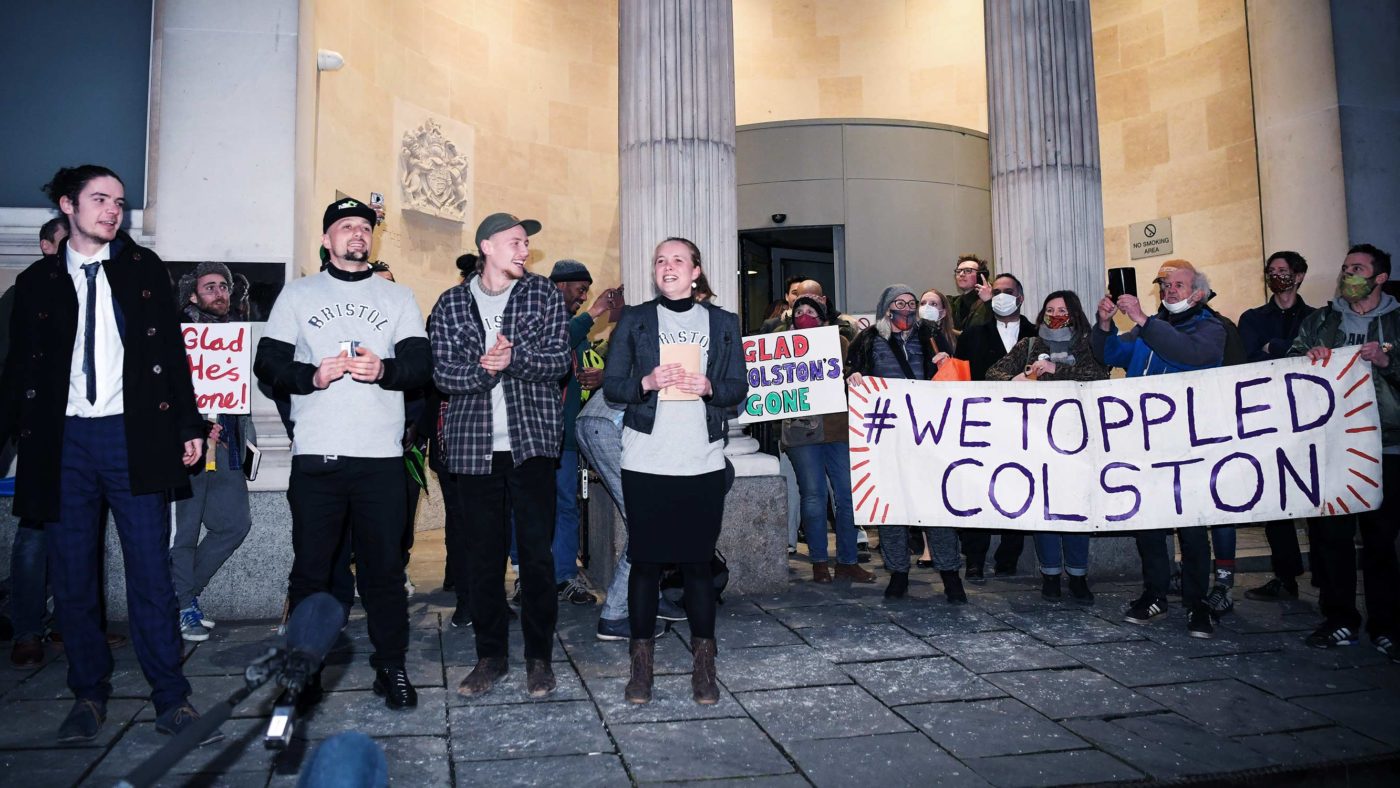So, the Colston Four are free. Depending on your point of view, this week’s acquittal of the Bristol statue-topplers is either a triumph for the cause of racial equality or a dangerous green light to mob rule. Or, perhaps, neither.
To listen to some of the pro-topplers, the arc of history bends unerringly from the Montgomery Bus Boycott, through the anti-apartheid struggle and on to Milo, Sage, Rhian and Jake. Broadcaster Adil Ray even compared the quartet to Nelson Mandela and Martin Luther King, without any obvious irony.
But to cast the Four as being on the ‘right side of history’, as historian and defence witness David Olusoga did, requires a wilful misinterpretation of those who opposed their actions. The objection was never that Edward Colston or the slave trade from which he profited were worthy of celebration, but that this was not the way to deal with his monument. As one observer put it: ‘Wanting something to happen and the way you go about doing it…are different things’. Which rightwing blowhard was that? The Labour mayor of Bristol, Marvin Rees.
For what it’s worth, I share the instinctive bafflement felt by many at the verdict. For non-lawyers unfamiliar with the ‘lawful excuse’ element of criminal damage, it seems highly counter-intuitive that defendants could admit to the basic facts but still go free. Even after reading this thorough and eloquent explanation from the Secret Barrister, my main take-away was grudging respect for the skill of defence barrister Liam Walker, rather than agreement with the outcome.
However, the idea advanced by some that the verdict threatens the rule of law is an odd response to the outcome of a jury trial, a process which the Justice Secretary – not a man noted for his Wokery – recently described as a ‘quintessentially British tradition’. Verdicts the public or government dislike are a feature of the system, not a bug. (And as the Secret Barrister notes, a different jury faced with the same facts might have found the defendants guilty.)
One difficulty in all this is that we don’t actually know why the jury came to the decision they did. There wasn’t one single defence argument, but several, some of which may have weighed more heavily on some jurors than others.
Some of these, especially the idea that the statue represented an ‘indecent display’, are pretty hard to swallow (not least because ‘indecent’ in this context is a synonym for ‘lewd’, not offensive). Likewise the argument that the statue wasn’t actually damaged because it is now worth far more than it was previously is a post-hoc excuse, not a reason for the original action.
Ultimately though, without access to a jury’s deliberations, commentators on both sides are just speculating. That goes just as well for ‘the right side of history’ people as for those arguing the verdict is the triumph of ultra-wokery. After all, it’s perfectly plausible that the jury were not especially sympathetic to the defendants’ arguments, but felt a conviction and possible custodial sentence would be a disproportionate sanction. A modest reform that could help in future cases might be to at least give jurors the option of explaining their decisions, without compelling them to do so.
From a short-term political point of view, you can see why Conservative ministers, most notably the Attorney General, might want to pursue the matter. After all, when Jeremy Corbyn and Zarah Sultana are cheering something, you can usually bet your bottom dollar most voters are on the other side of the argument.
But what felt like pushing at an open door when the Tories were riding high in the polls today seems peripheral compared to concerns about the cost of living that came into sharp focus this week. It might be tempting to inflate these kind of rifts, but at the end of the day it’s bread-and-butter that matters most, not culture war scraps.
Click here to subscribe to our daily briefing – the best pieces from CapX and across the web.
CapX depends on the generosity of its readers. If you value what we do, please consider making a donation.


